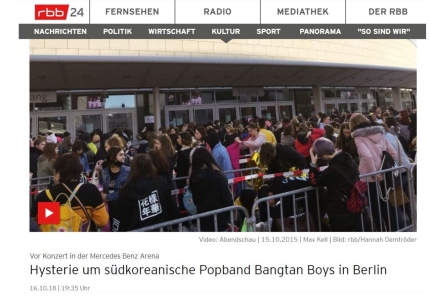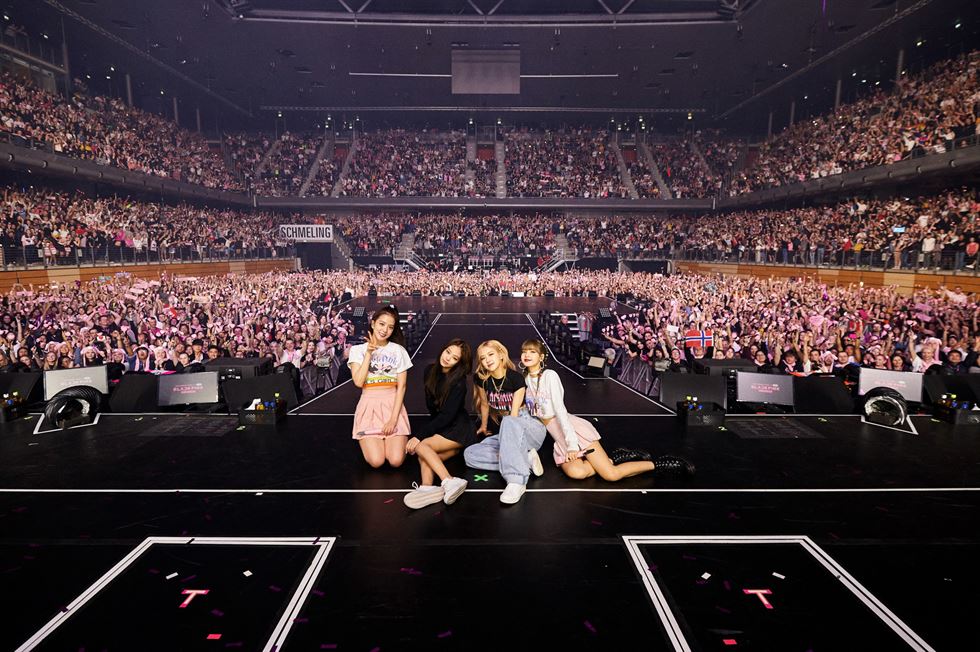How German media perceives the K-pop phenomenon:
Orientalism and Othering
When Edward Said first came up with his concept of Orientalism in his 1978 book, what he was referring to was mainly the perspective from the West romanticizing the Middle East culture. He was critically reflecting on the interpretation of the Orient in western society, pointing out that the concept of the Orient was constructed by the westerners. Regardless of how positive or negative the Westerners have described the culture and people from the Middle East, the idea of Orient was not depicting the reality of the Middle East and was rather exoticizing it as somewhat strange and different. Orientalism is, therefore, dangerous and problematic because it is taking the perspective of colonizers while ignoring the realities and the details of the non-Western culture. Even if Said’s concept was more focused on the exoticization of Arab culture, it is applicable when it comes to the Western media’s interpretation of the East Asian culture.
Musikexpress points out German media’s racist portrayal of K-pop trends
It was quite a significant gesture from a renowned German music magazine, Musikexpress to admit that they took an ignorant and racist point of view regarding the K-pop trends. In their article published in August 2020, the authors admit that the German media have treated K-pop with ignorance and arrogance without knowing so well about it.
“K-pop is conquering the world. Or better said: K-Pop has long since conquered the world. But most of the media in this country, Feuilletons, Pro7 or, yes, the Musikexpress, still treat this huge, hypermodern wave from South Korea like a temporary quirk of, particularly behavioral teenagers. (…) Despite these considerable numbers, K-Pop is still often grossly neglected in the local media world or treated with a mixture of ignorance and arrogance, in moderately researched and, last but not least, latently racist articles. The music itself, the garish videos, the crazy dance choreographies, the professionalism of the staging, the wild fashion – all of this is often denied its artistic or pop-cultural relevance, as it is the product of an industry that is as cool as it is tough.[1]”

K-pop as somewhat creepy and weird: Othering East Asian culture
It is indeed an accurate description regarding the German medias’ view, depicting the East Asian exotic, strange, and somewhat creepy. For instance, when the German media rbb24 was reporting BTS’s concert in Berlin at Mercedes Benz arena in 2018, they used the term ‘hysteric’ to describe the fans. One K-pop fan from Germany also has claimed that the German media mistakenly used the video of Japanese costume play audiences when showing the K-pop fans[2]. Moreover, when the popular K-pop girl group Blackpink had a concert in Berlin, the German interviewers were asking questions about Sulli, who took her own life, which was very rude. The German media seemed to be merely focusing on the dark side of K-pop industries.
As British cultural theorist Stuart Hall explains, systemic racism and reproduction of subordination are deeply rooted in ‘Othering’. In his book Representation, he argues the concept of Othering, which is labeling other people’s culture and distinguish ‘them’ from ‘Us’. The German medias’ portrayal of the East Asian and K-pop culture shows how they alienate East Asian culture (no need to mention their ignorance to mix up Japan and Korea). It was a good first move from the German music magazine, Musikexpress to admit its racist view. Perhaps it’s the time for the German media to be more inclusive and open-minded.
Sources:
Header Image: BLACKPINK members pose for a photo with fans during the Berlin gig in 2019 at Max-Schmeling-Hall. Courtesy of YG Entertainment)
[1] https://www.musikexpress.de/warum-k-pop-der-perfektere-pop-ist-bts-1592705/(the article was translated from German to English)
[2] For more insights see my master’s thesis, “Asian Representation Matters: Asian Germans’ media reception of the German media” (Chang, 2020)

